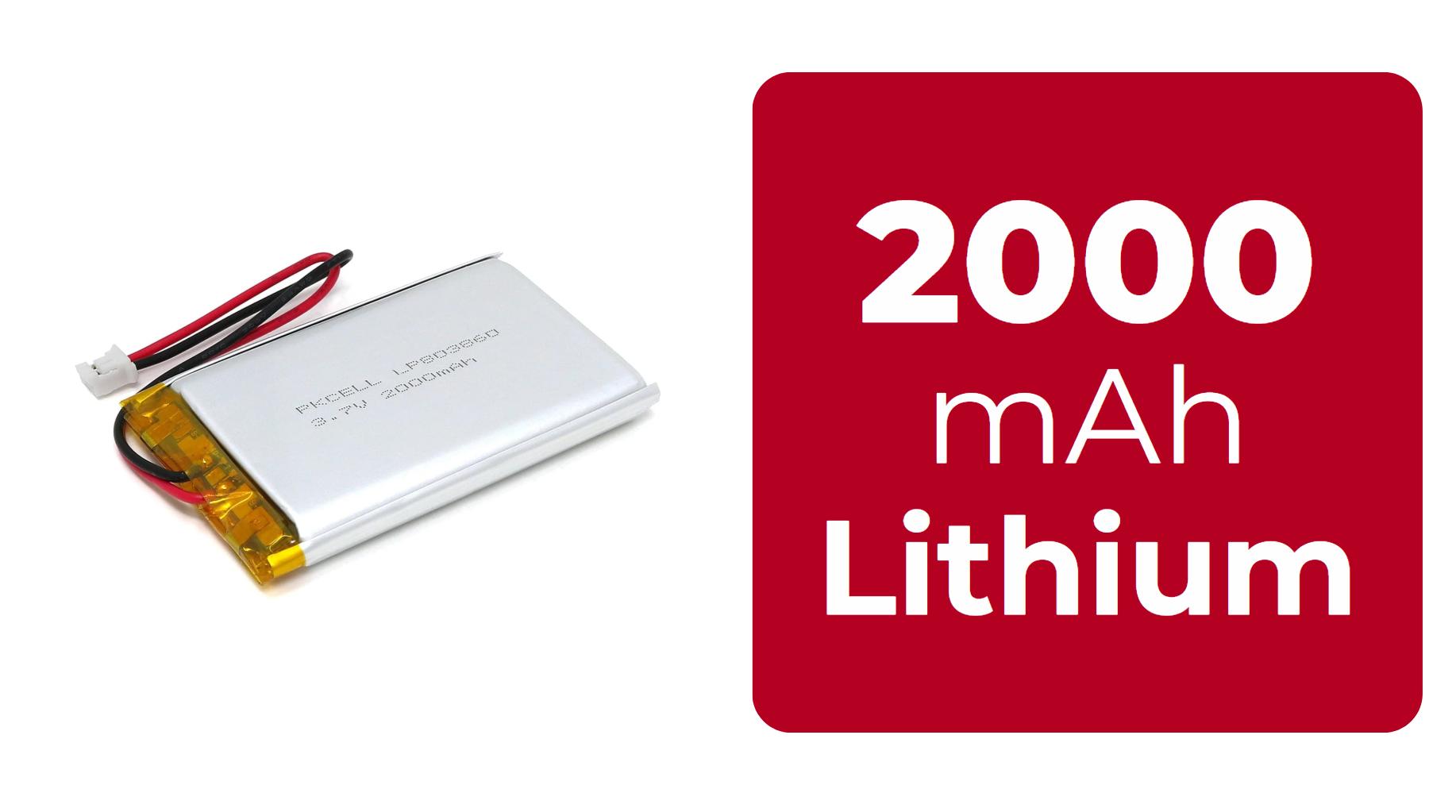The lifespan of a 2000mAh lithium battery depends on several factors, including the device’s power consumption and usage patterns. On average, a 2000mAh battery can last anywhere from 2 to 10 hours in typical usage scenarios. Devices with higher energy demands will drain the battery faster, while more efficient devices will extend its life.
Understanding Battery Capacity and Lifespan
Battery capacity, measured in milliamp hours (mAh), indicates how much charge a battery can hold. A 2000mAh lithium battery signifies that it can theoretically supply 2000 milliamps for one hour before depleting. However, real-world usage varies significantly based on the device’s power requirements.
Factors Affecting Battery Life
- Device Power Consumption: Different devices consume power at varying rates. For instance, a smartphone may use around 300-500mA during active use, while a Bluetooth headset might only use about 50mA.
Device Type Average Current Draw (mA) Estimated Battery Life (Hours) Smartphone 300-500 4-6 Bluetooth Headset 50 40 Digital Camera 600-800 2.5-3 - Usage Patterns: Continuous use of high-power features such as GPS, video streaming, or gaming will significantly reduce battery life compared to standby or low-power modes.
- Battery Age and Condition: Over time, lithium batteries lose capacity due to chemical degradation. A new 2000mAh battery may perform better than an older one with diminished capacity.
- Temperature Effects: Extreme temperatures can affect battery performance. High heat can lead to faster discharge rates, while cold temperatures can reduce the effective capacity.
Latest News
- Recent advancements in lithium battery technology focus on improving energy density and extending lifespan through innovative materials and designs.
- Companies are developing smart battery management systems that optimize performance based on usage patterns and environmental conditions.
- The global demand for lithium batteries is surging, driven by the growth of electric vehicles and renewable energy storage solutions.
Redway Expert Comment
“As experts in lithium battery manufacturing at Redway Battery, we recognize that understanding the factors influencing battery life is crucial for consumers and manufacturers alike. A well-designed device paired with a quality lithium battery can achieve optimal performance and longevity. We are committed to providing high-quality LiFePO4 batteries that not only meet but exceed industry standards for reliability and efficiency.”
Choosing the Right Battery for Your Application
When selecting a 2000mAh lithium battery, consider the following:
- Application Requirements: Assess the specific power needs of your device to ensure compatibility.
- Battery Quality: Choose reputable brands known for their reliability and performance.
- Charging Cycles: Understand how many charge cycles your battery can endure before its capacity diminishes significantly.
Recommended Product: LiFePO4 Batteries
For clients or importers looking for reliable energy storage solutions, we recommend our high-quality LiFePO4 Batteries from Redway Battery’s catalog. These batteries offer superior safety features, longer cycle life, and stable performance across various applications including eBikes, floor cleaning machines, and solar power systems.
How Long Can a Battery Power a Circuit? mAh-Based Calculator
FAQs
- How long does a 2000mAh lithium battery last?
The lifespan varies by device usage but typically ranges from 2 to 10 hours depending on power consumption.
- What factors influence the lifespan of a lithium battery?
Factors include device power consumption, usage patterns, battery age, and temperature effects.
- Can I extend the life of my lithium battery?
Yes, by minimizing high-power usage and keeping it within optimal temperature ranges.
- What is the difference between mAh and voltage in batteries?
mAh measures capacity (how long it lasts), while voltage indicates the electrical potential supplied by the battery.
- Are all lithium batteries the same?
No, there are different types of lithium batteries (e.g., Li-ion vs. LiFePO4) with varying characteristics suited for specific applications.
- How long does a 2000mAh lithium battery last?
A 2000mAh lithium battery typically lasts between 2 to 10 hours, depending on the device’s power consumption. Higher energy-demand devices will drain the battery faster, while more efficient devices can extend its lifespan significantly. - How long does a 2000mAh battery last in general?
In general, a 2000mAh battery can last from 2 to 10 hours based on usage patterns and device requirements. Factors such as power consumption and efficiency play crucial roles in determining the actual duration. - How long does a 2000mAh battery last in a fan?
A 2000mAh battery in a fan can last approximately 2 to 6 hours, depending on the fan speed settings. For example, at low speed, it may last up to 6 hours, while at high speed, it could run for about 2 hours. - How long does a 2000mAh battery last in an RC car?
A 2000mAh battery in an RC car generally lasts between 15 to 30 minutes of continuous use. The exact duration depends on the car’s power consumption, terrain, and driving style. - How long can a 20,000mAh battery last?
A 20,000mAh battery can last anywhere from several hours to days, depending on the device’s power requirements. For example, if a device consumes 1000mA, the battery could provide around 20 hours of use. - How many hours does a 4000mAh battery provide?
A 4000mAh battery typically provides around 8 to 12 hours of usage for devices with moderate power consumption. The actual duration varies based on the specific device and its energy demands. - What is the price of a 2000mAh battery?
The price of a 2000mAh battery generally ranges from $1 to $12, depending on the type and brand. Lithium-ion batteries tend to be more expensive than other types due to their higher efficiency and performance. - How long does a 2500mAh battery last?
A 2500mAh battery can last approximately 3 to 10 hours based on usage and device efficiency. For example, devices with lower power consumption will extend the battery life significantly compared to high-drain devices.



